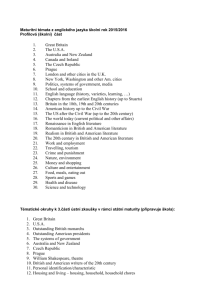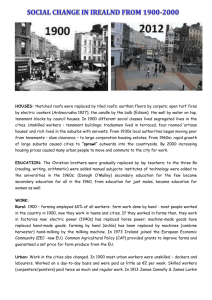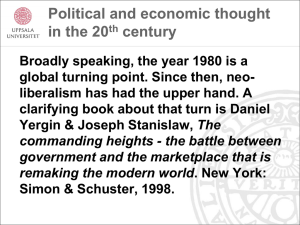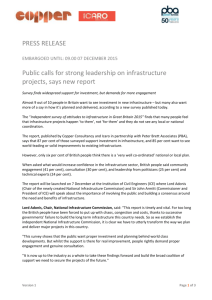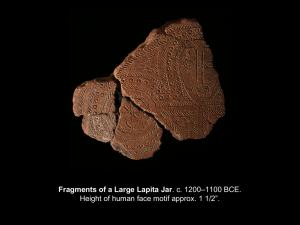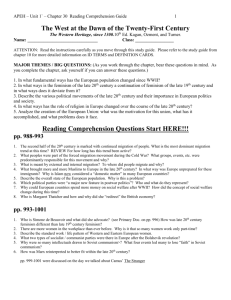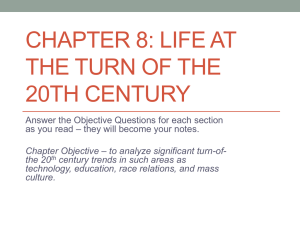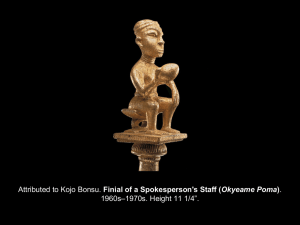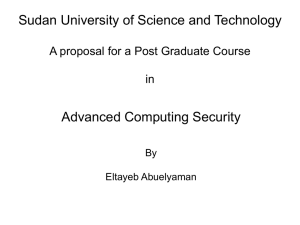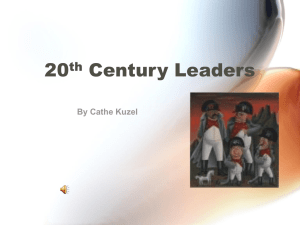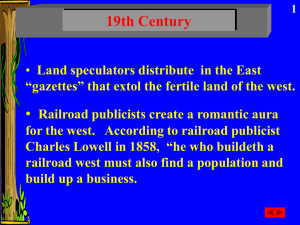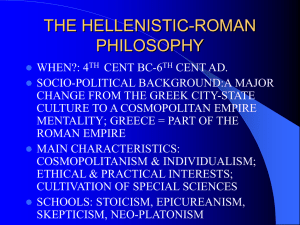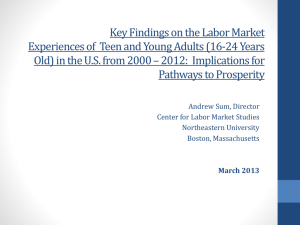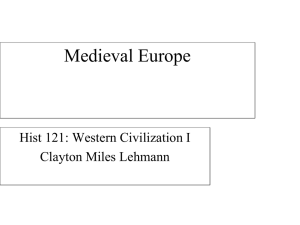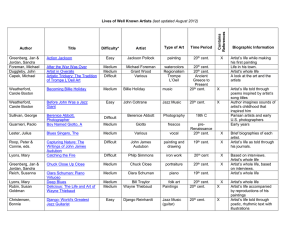Topic – 20th century Britain with a focus on
advertisement
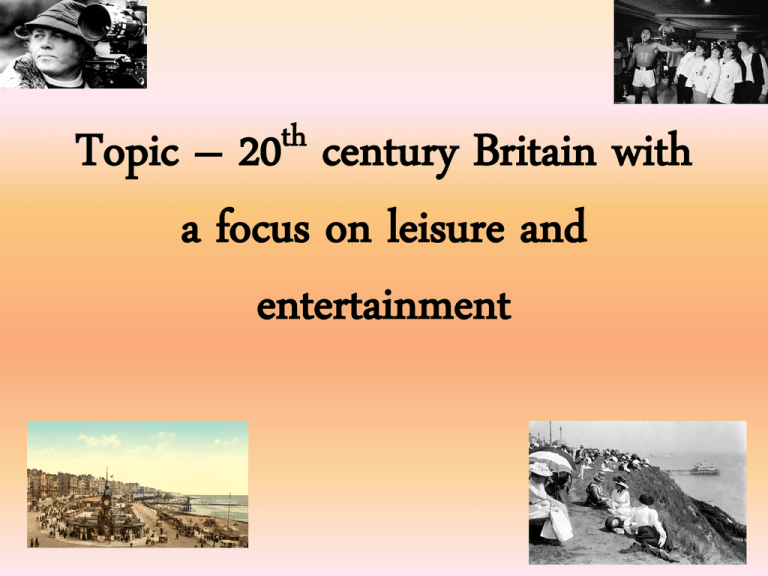
th 20 Topic – century Britain with a focus on leisure and entertainment Between 1900 and 2000 everyday life in the UK changed at an enormous speed: • • • • Even more of us lived in urban areas with 89 per cent of the UK population living in towns and cities in 2000. Social boundaries blurred as money and attitude became more important than 'birth'. Life expectancy in the UK increased by an average of 30 years thanks to improvements in standards of living and medicine. The rights of ordinary people to have their say in how the country was run changed when men and women were allowed to vote on equal terms. The UK even had its first female Prime Minister, Margaret Thatcher, between 1979 and 1990. Technology has allowed us to explore the world, and the universe, in greater detail. We can now circle the planet in less than a day and a half. In 1900 trains were the fastest way to travel and went at 100 miles an hour, by 2000 air travel had become widespread allowing people to travel at 600 miles an hour or more. We can communicate with someone on the other side of the world in seconds and know what our planet looks like from space. But, the 20th century saw some changes for the worse: • • • • In 1900 about 15 per cent of the UK population lived in poverty. By 2000 that figure had climbed to 17 per cent. 1,106,000 Britons died in wars during the 20th century. Terrorism claimed thousands more. Changes in lifestyle, such as poor diet and no exercise, led to an increase in certain diseases. Prejudice, intolerance and violence were still part of everyday life for many. At the start of the 20th century, British society was divided into three main classes: Aristocracy Middle Class Working Class By the end of the 20th century, class boundaries became blurred as attitudes played a bigger part in defining social groups rather than income. Some see the 20th century as the period when individuals became more important than wider society. British Prime Minister Margaret Thatcher even said: "There is no such thing as society... There are individual men and women". The changes in society were brought about by many events, both big and small, but some of the key changes were: War Two world wars altered Britain by changing the role of women, accelerating technological advances and opening the way for increased immigration. Politics Interest in politics waned. When Labour won the 1950 election, the turnout was 84 per cent. In the 2001 election, the turnout was 59 per cent. Young people became more interested in single issues such as the environment, than party politics. Mass media The growth of cinema at the start of the century followed by the arrival of radio in the 1920s and regular television broadcasts from the mid-1930s onwards meant people could be informed and entertained on a huge scale. Although a private company at first, the BBC became a not-for-profit organisation when it gained its royal charter in 1927. The BBC was the UK's first broadcaster and is licensed to operate by the government. Civil rights movements Groups that had previously had their rights controlled by the government began to make their voices heard. From Suffragettes in the early part of the century to racial equality groups and gay rights organisations, many people have campaigned to be fully included in British society and politics. Welfare State After the Second World War the government felt that the British people needed a country "fit for heroes". The NHS and welfare state were set up in 1948 to take care of people when they were vulnerable and sick. Education In the early 1900s working class children often worked half the day and then went to school for half the day to learn the '3 Rs' reading, writing and arithmetic. After 1945, all children got a good education and by the 1960s children had full-time education, free milk and more leisure time. In the 1960s, the number of students going to university doubled. Multiculturalism The arrival of immigrants from places such as the West Indies and south Asia brought about the idea of multicultural Britain. Some feel that multiculturalism has not worked and that it has created a more segregated society. Others believe it is an important aspect of modern Britain. Digital revolution Many people talk about a Digital Revolution in the 20th century. Digital technology has changed our lives in all sorts of ways from how we pay for things and do our shopping to how we relax and communicate. Although mathematicians such as Charles Babbage and Ada Lovelace were working on the earliest ideas for computers in the 19th century, computers as we know them today were developed in the 1940s. The Internet was invented in the 1960s and 1970s, but didn't become part of everyday life until the 1990s. Likewise, the first computer games were developed back in the 1950s and 1960s. They were only really available to the university students and teachers who worked on them as the computers then were so large and expensive. In the 1970s the first mobile phones were invented. The very first mobile weighed 1kg, which is about the same as a large bag of sugar. Today, over 70 per cent of people have access to a mobile phone. In developing parts of the world, such as many African countries, mobile phones have helped people to improve their quality of life by giving them access to information about health and finance. A study of the increase in leisure over the first half of the 20th century in London: http://www.20thcenturylondon.org.uk/theme/l eisure And find out where Londoners ate out from 1900-1950: http://www.20thcenturylondon.org.uk/eatingout-1900-1950
